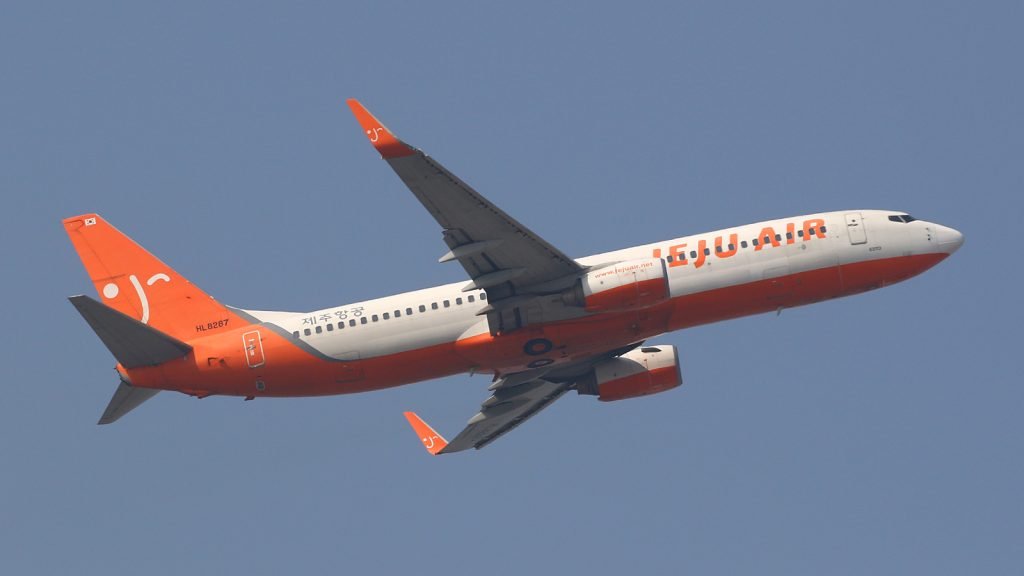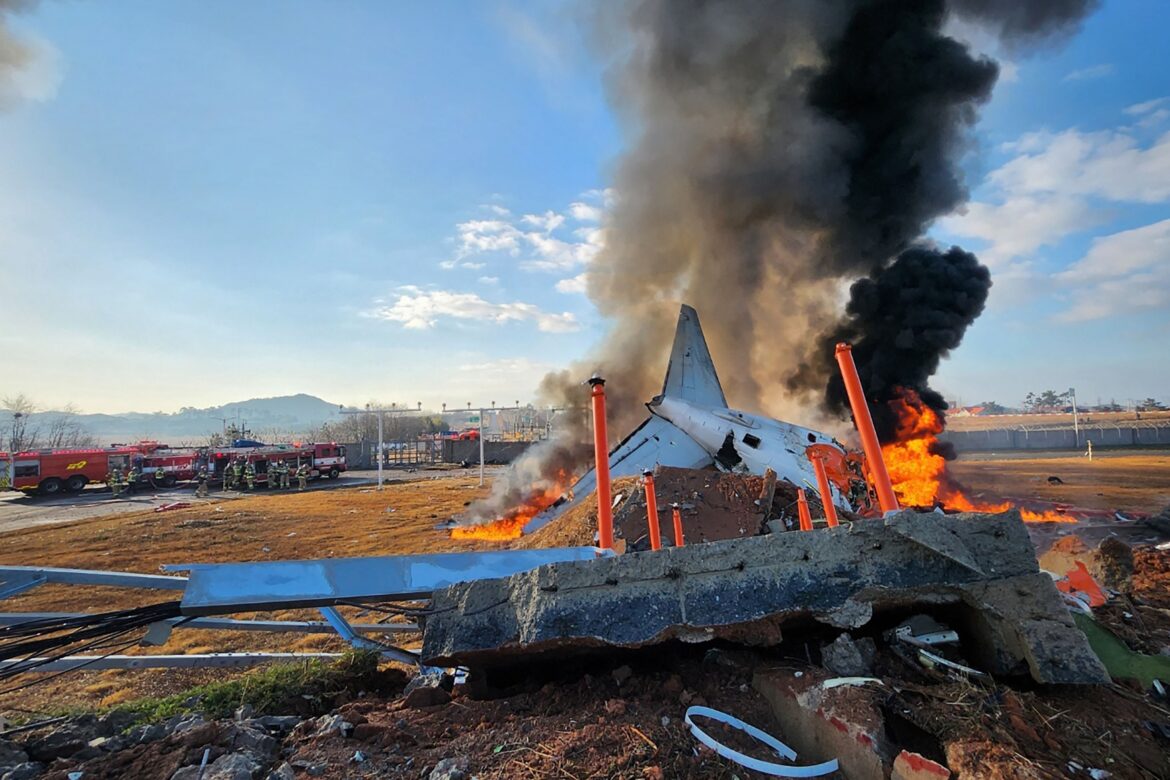Summary
Sad news greeted us on 29th December as reports and images showed a Boeing 737-800 operated by Jeju Air had crashed at Muan in South Korea, killing many of those on board.
We dive into the airline and what happened in this air accident.
Who is Jeju Air?

Jeju Air 737 HL8267. Photo (c) Erik Ritterbach
Jeju Air, founded in January 2005, is South Korea’s first and largest low-cost carrier (LCC). Based in Jeju City, the airline was established to connect the popular tourist island of Jeju with the mainland, catering to the growing demand for affordable domestic travel. It commenced operations in June 2006, with its inaugural flight linking Jeju and Seoul Gimpo Airport.
Owned by the Aekyung Group, Jeju Air quickly expanded its operations beyond domestic routes, launching international services in 2008 to cities in Japan. Today, its network spans over 80 destinations across Asia, including China, Japan, Thailand, Vietnam, and the Philippines, as well as its domestic routes. The airline operates from key hubs at Jeju International Airport, Seoul Gimpo, and Incheon International Airport, making it a vital player in connecting travelers within and beyond South Korea.
Key milestones include its IPO on the Korea Exchange in 2015, making it the first Korean LCC to go public, and its leadership in the low-cost market during South Korea’s travel boom in the late 2010s. Despite challenges during the COVID-19 pandemic, Jeju Air has rebounded strongly, continuing to expand its fleet and routes while maintaining its reputation as a pioneering force in Asia’s budget aviation sector.
Jeju Air’s Aircraft Fleet
Jeju Air operates a fleet of Boeing 737 aircraft, comprising 36 of the 737-800 and 2 of the 737 MAX 8.
A further 38 of the 737 MAX 8 are on order, which will be used to replace the 737-800s.
The airline is known for its budget-friendly fares, on-time performance, and innovative marketing campaigns, which have boosted its popularity among leisure and business travelers alike.
Flight 7C2216 What Happened?

HL8088, the aircraft involved in the crash. Photo (c) Anton Homma
Flight 7C2216 was operated by Boeing 737-800 HL8088 on 29 December 2024.
The routing was from Bangkok’s Suvarnabhumi Airport to Muan International Airport in South Korea.
While investigations are still underway, what we know so far is that the aircraft was approaching runway 01 to land at around 9am. It appears that the crew elected to go around on this approach.
As it did so, witnesses and even a passenger on board (via a text to family) report that the aircraft suffered multiple bird strikes. The crew had reportedly been warned of birds in the area by air traffic control services.
The aircraft struggled to maintain power and altitude, and also to lower the landing gear. They positioned for an emergency, wheels-up landing on the opposite runway 19 and, after touching down were unable to control the direction of travel before the aircraft collided with a concrete wall.
Horrifying footage caught the accident on camera (viewer discretion advised):
Horrifying footage emerging of a Jeju Air Boeing 737-800 (not a Max) with 175 onboard involved in a crash at Muan International Airport in South Korea — video shows the aircraft attempting a ‘belly landing’ (without its landing gear extended) before impacting the perimeter wall pic.twitter.com/C3JCUz8Iw8
— Alex Macheras (@AlexInAir) December 29, 2024
The collision and subsequent explosion largely destroyed the aircraft, and it is thought that at least 177 of the 181 on board have died.
Two crew members sat in the rear of the aircraft survived and are receiving treatment for serious injuries.




